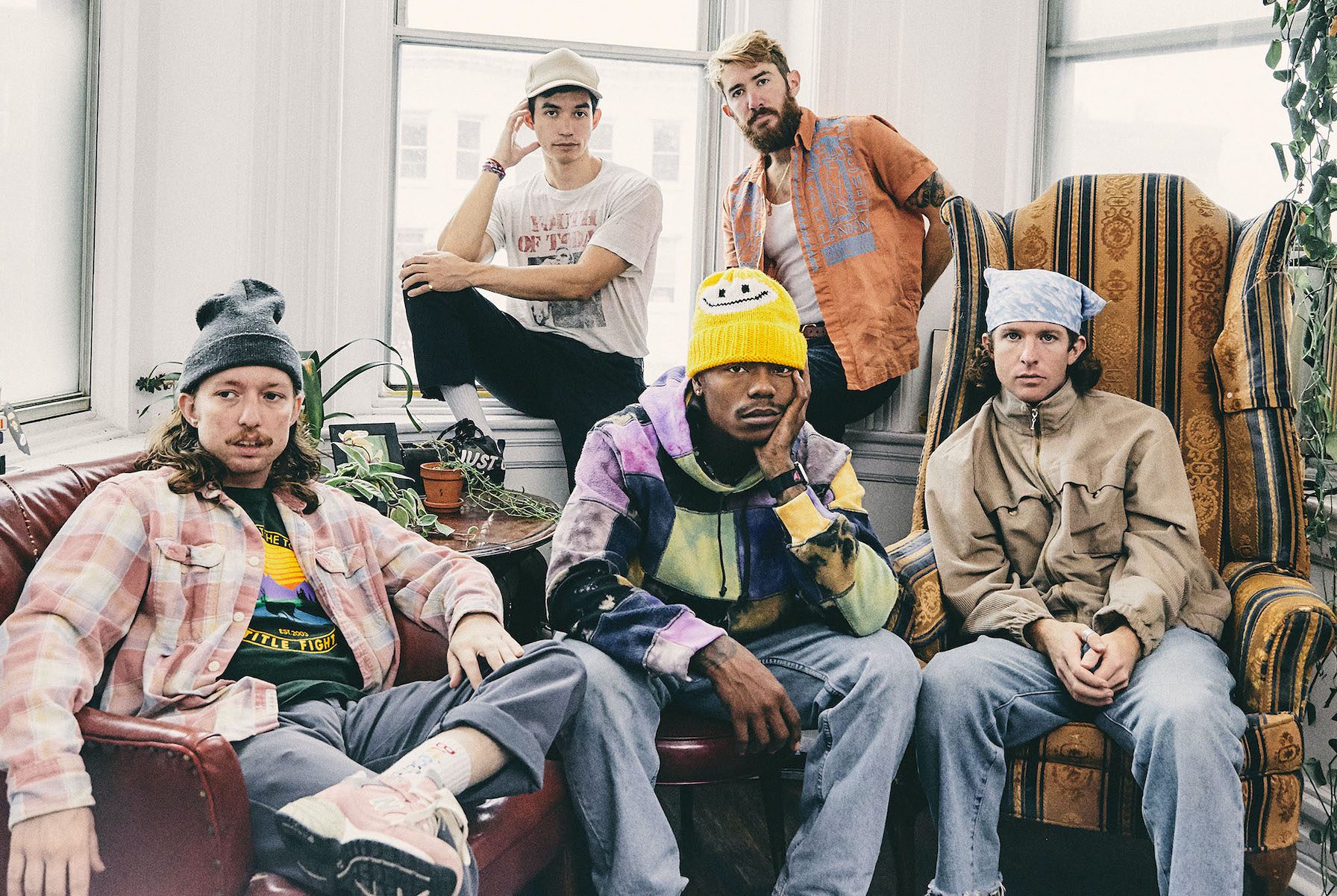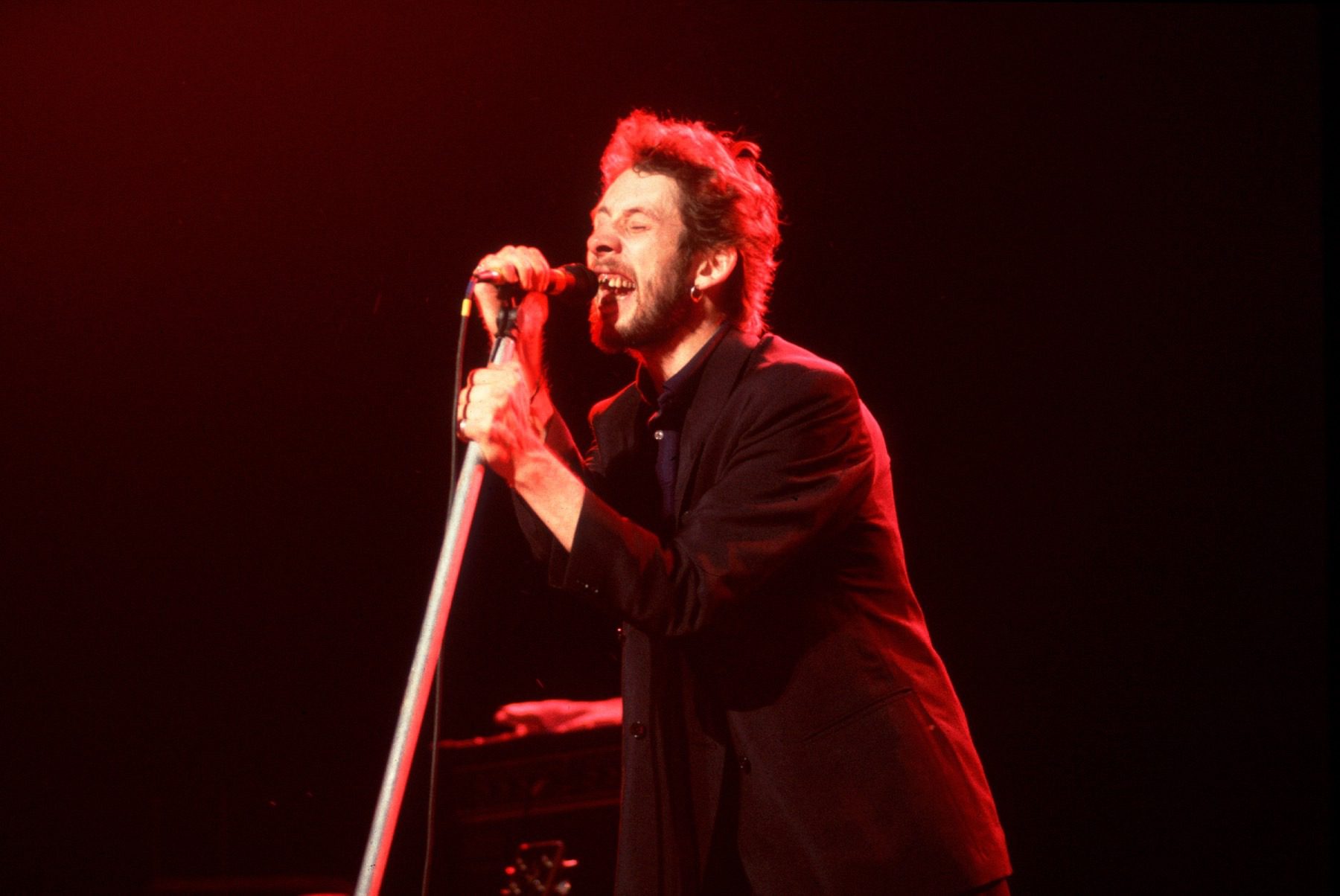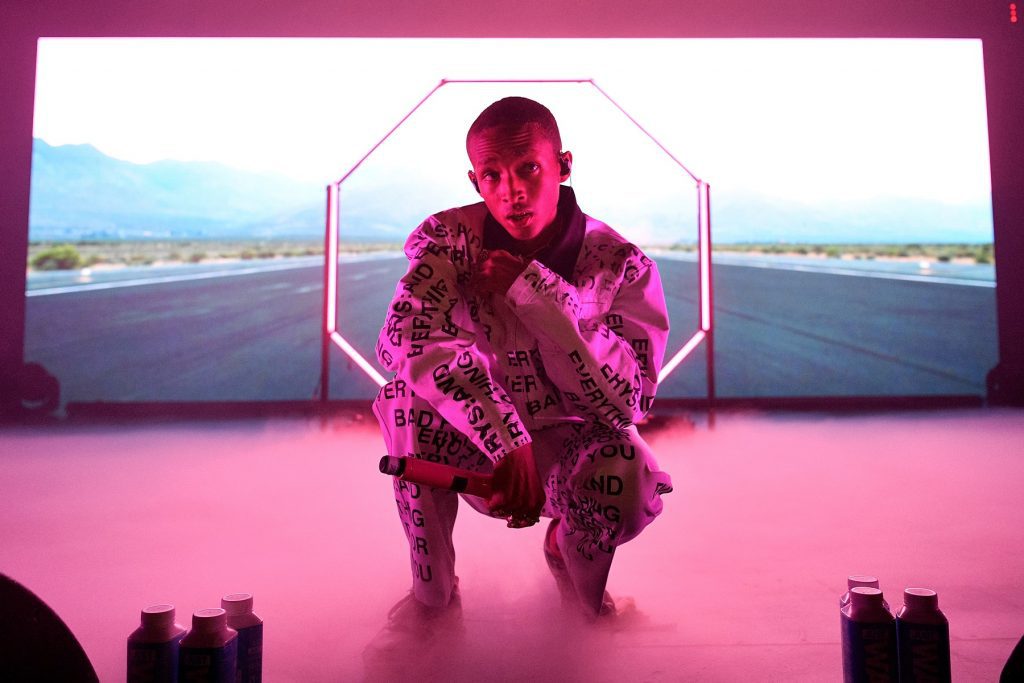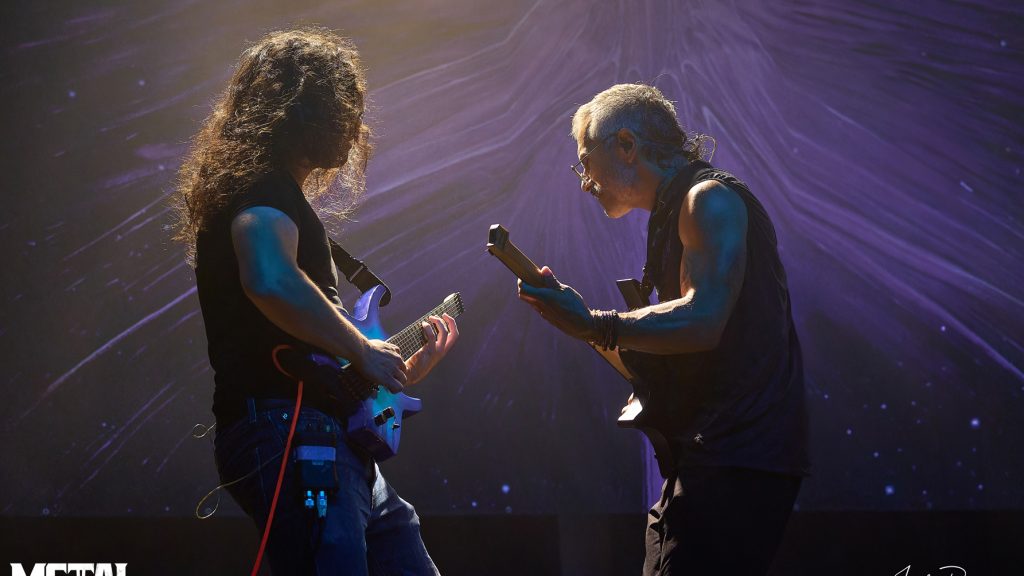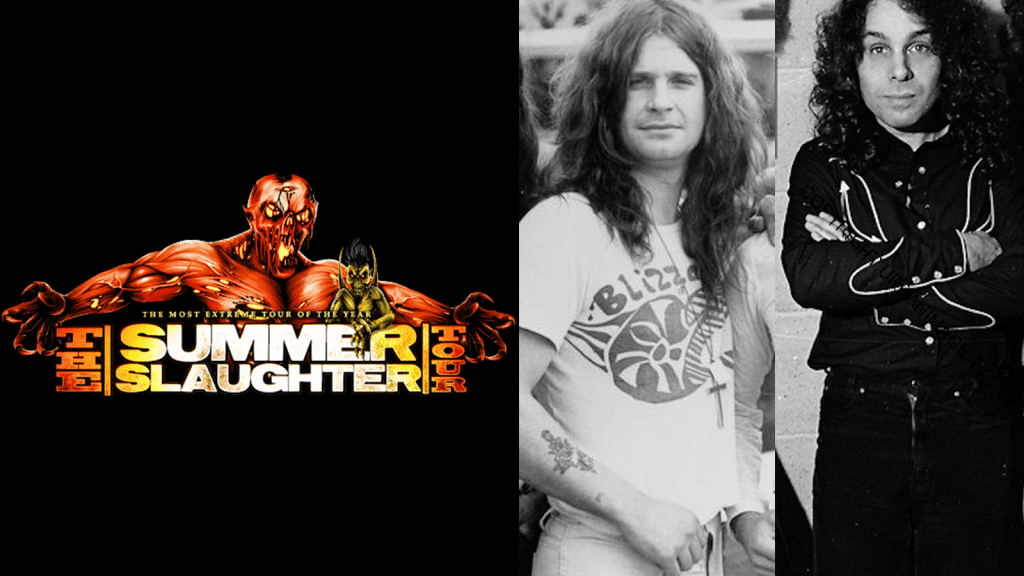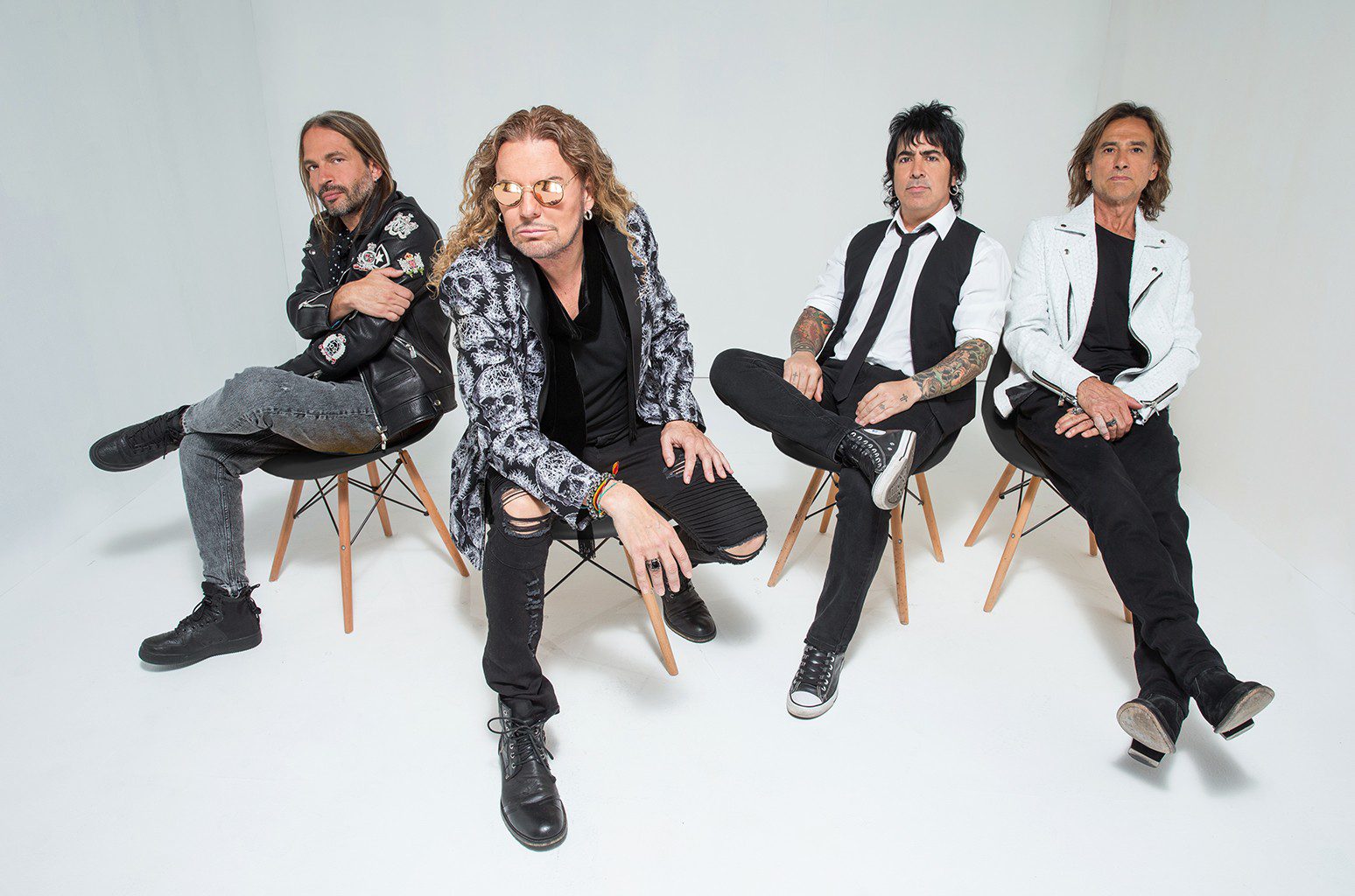
Maná on Their Historic Los Angeles Residency — and the Surprises They Have in Store
With a 30-year career filled with hits, Mexican rock legends Maná have become one of the most iconic Latin American bands of all time — and they’re still finding ways to make history. Today, the band announced a one-of-a-kind residency at the Forum in Los Angeles, marking the first arena residency in the city where they played some of their earliest shows in the U.S. almost three decades ago. The Forum is a particularly special place for them: On their last tour, in 2019, they became the first act to sell out the venue for seven nights, shattering a record previously held by Kanye West and the Eagles. They’ll kick things off with four dates on March 18th and 19th and April 22nd and 23rd. After that, frontman Fher Olvera tells IndieLand that the band will stick around as long as fans want.
“We’ll be here until people ask us to stop. So, it could two months, four months, one year, who knows?” he says on the phone from Puerto Vallarta, where the band’s studio is located. The singer-songwriter is endlessly warm and upbeat, laughing as he’s briefly interrupted by a chorus of boats passing through the beachside town where he spent much of the pandemic. After months of lockdown, the band can’t wait to get back onstage: “It’s like a bull being released into a bullring,” he adds. Olvera shared the details of their unique residency, the connection they have to Los Angeles, and the emotional set of duos and performances they’ve been working on for the last year.
blogherads.adq.push(function () {
blogherads
.defineSlot( ‘medrec’, ‘gpt-dsk-tab-latin-article-inbody1-uid0’ )
.setTargeting( ‘pos’, [“mid”,”mid-article”,”btf”,”in-article1″] )
.setSubAdUnitPath(“music//latin//article//inbody1”)
.addSize([[300,250],[2,2],[3,3]])
;
});
You’ve just announced a historic residency at the Forum, the first-ever arena residency of its kind in Los Angeles. What does it mean to you?
Los Angeles is like our second home. It’s a city that to Maná — and to a big part of the Latino cultural world — is very important. Los Angeles has so much that’s special. It has a huge Latino community. It’s a place where we have a lot of history, where we played at a small venue called the Los Angeles Palladium almost 30 years ago. When we played there, it was almost like the rise of this monster effect, because I remember all the tickets to that show sold out. We weren’t on the radio very much back then, it was all word of mouth. Maná won people over through word of mouth, and people supported us. So for us it’s been important. We feel really close to L.A. and we feel connected to the Latino and Mexican community there. It’s a tremendous thing — we broke a record at the Forum that only the Eagles had done [and Kanye West] — can you believe it? We’re happy to be doing a residency and we’re happy we’re doing it here.
You’ve said there are many surprises planned every night. Without giving anything away, what can fans expect?
Throughout our career, we’ve released some 10, 11 albums — which is actually not that much compared to rock bands who have released, like, 40. We’ve always released a lot of songs — like on ¿Dónde Jugarán los Niños?, there were, like, six singles, and on others, there were five or six. That’s all to say that we have a lot of songs that people are hoping to hear. The set lists will always be different, so this is the good news: Every show will be different. Maná has a lot of material, and the set list might change from one Friday to Saturday. Maybe one night we’ll do “Clavado En Un Bar” and “Vivir Sin Aire,” maybe “Rayando El Sol” another. I can’t say they’ll all be completely different, but they won’t be the same.
What does it feel like to come back with an announcement like this — and to have months onstage to look forward to — after the pandemic shut down live music for so long?
That’s exactly the issue. We didn’t know what to do with so much adrenaline! After 30 years of getting up onstage and experiencing everything — all the emotions that come with it — it’s not easy to just stop. We’ve played from the bakeries in Guadalajara to stadiums in Spain with thousands. There’s been everything. But then it all freezes up and you go, “ay, güey!” We were really craving getting back onstage. It’s like a bull being released into a bullring.
blogherads.adq.push(function () {
blogherads
.defineSlot( ‘medrec’, ‘gpt-dsk-tab-latin-article-inbody2-uid1’ )
.setTargeting( ‘pos’, [“mid”,”mid-article2″,”btf”,”in-article2″,”mid-article”] )
.setSubAdUnitPath(“music//latin//article//inbody2”)
.addSize([[300,250],[300,251],[2,4],[4,2]])
.setLazyLoadMultiplier(2)
;
});
For some artists, the pandemic offered a moment for a kind of creative reset. What was it like for the band?
I think for everyone, it could be a reset and a moment to talk more, connect more, reflect more. For us, we wanted to keep playing. My band members, we were just rehearsing, and we didn’t want to leave rehearsals. We were just joking about that — all my band members are big jokers, and they have a great sense of humor, like proper Mexicans, the cabrones — but we got everything ready while also doing some inward reflection. What I used to try and do was to stay off my phone and not to go crazy reading news, especially now that there’s so much fake stuff going on… I tried to disconnect from that. I stayed in Puerto Vallarta, and when the beaches were open, I went there. We also took the opportunity to record several duets—we did “Rayando El Sol” with Pablo Alborán, and there are more surprises coming. The band had a lot of fun of that.
One of the duets was “El Reloj Cucú” with 12-year-old Mabel from La Voz Kids México. You also sat down with her for a conversation at Billboard Latin Week. How did that collaboration come about and what did it mean to perform that song with her?
That story is emotional for me, because “El Reloj Cucú” I wrote for my father — and also my mother. I was seven years old when my father died, and I was raised among all women. I’m actually extremely grateful that I was raised among women — my mother, my three sisters, and my grandmother. But I also missed that part that my father gave me, which my mom had to supply, and she did a wonderful job. But I didn’t understand it and when I was little, I would play with this cuckoo clock and I’d ask it, “Where is my dad?” And I’d have all these fears. Death is undecipherable as an adult, imagine how hard it is as a kid. So, all of that was part of this experience when I wrote the song as an adult. It was supposed to come out on Maná’s first album, but I couldn’t record it — my voice would break every time. We did it on the second album, but I still couldn’t sing it live for a long time. That emotion turned into nostalgia later, and admiration for my mother, and an understanding of all the strength she mustered. She was an incredible woman: firm, on the one hand, and sweet, on the other. She’s one of these mothers in Mexico, in Latin America, everywhere, who lose their husbands, who fend for themselves and their children.
As fate would have it, we were looking for a female vocalist and we met Mabel from La Voz, and she sings like the angels. When we tried to connect with her parents — we wanted to talk to her mom and dad about singing with her — we reached her mother, whose name is Fernanda, the same as my mother. She told us her husband had left after she got pregnant, and this woman has pushed ahead. She’s a super-beautiful person and a divine woman. I think in life, there’s things that get taken away from you, and things that make up for it. So we did this version of “El Reloj Cucú” with Mabel that I think is so beautiful with her singing. It’s something that’s really gotten a following, and we just did a video for it. I appreciate you asking about that, because so many people identified with that song.
